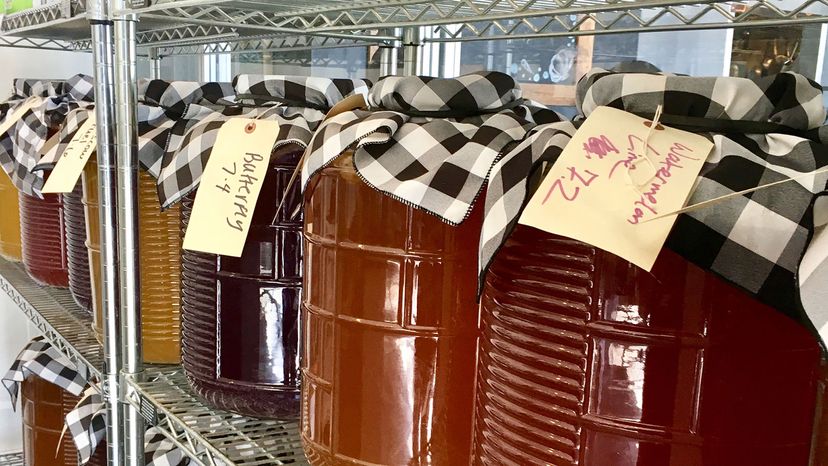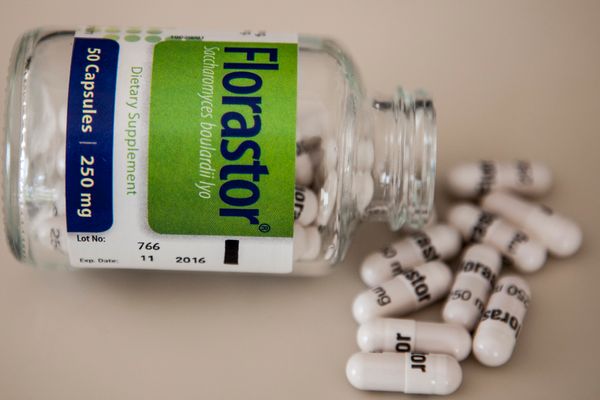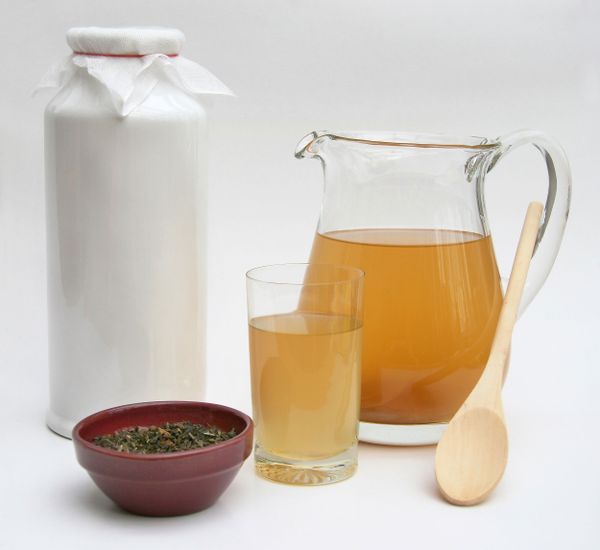Probably the most commonly touted potential benefit of kombucha is what it allegedly does for the gut. "Kombucha has probiotics since it is a fermented product. The probiotics provide healthy bacteria for your gut," says Dr. Monisha Bhanote, a pathologist with Scripps Memorial Hospital in La Jolla, California. She notes that such probiotics can help with commonly suffered problems with digestion and bloating. "If you choose a kombucha that is made from green teas, you will have even more added benefits due to the bioactive polyphenols found in green teas."
Indeed, many people point to anecdotal evidence as proof of the effectiveness of kombucha. "I personally used to suffer from severe bloating and after consuming kombucha for a few months the severity and the amount of bloating reduced significantly," emails Despina Pavlou, personal trainer and founder of PCOS and Nutrition.
Kombucha is alleged to control problems like high blood pressure, hypertension, hair loss, arthritis and even cancer. The immune system is also said to benefit from kombucha's antioxidant properties. However, none of these claims have been studied in humans, so evidence remains elusive, for the moment.
"Most of the studies performed have been animal studies (rats), and there is very little scientific evidence available that confirms the beneficial effects," Dr. Bhanote explains, "However, these studies leave room to test the benefits in humans."
A 2014 article published in the journal Comprehensive Reviews in Food Science and Food Safety looked at existing kombucha literature and concurred with Dr. Bhanote's opinion, but remained hopeful.
"Although kombucha tea cannot be granted official health claims at this time, it can be recognized as an important part of a sound diet," the researchers noted in the review. "Not exactly a traditional beverage, kombucha tea is now regarded as a "health" drink, a source of pharmacologically active molecules, an important member of the antioxidant food group, and a functional food with potential beneficial health properties."


